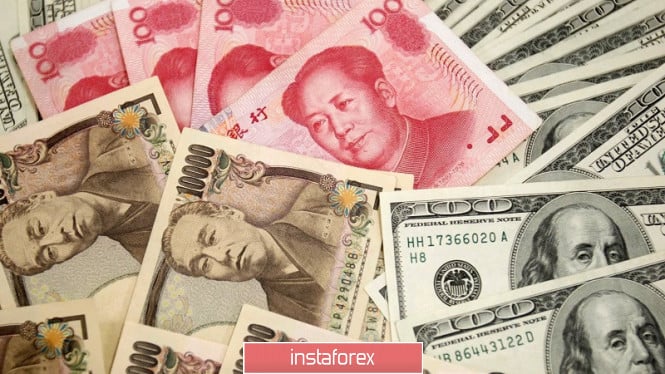
Donald Trump has long been indignant over the fact that the expensive dollar is offsetting the competitive advantages of the United States. At this time, experts from leading banks in the world are vying to talk about the upcoming devaluation of the US currency. Given the speed of the renminbi's fall, the need to act is clearly brewing.
Although on the Bank of China stabilized the yuan on Thursday, according to strategists, this is not for long. Fixing the course and focusing the market at around seven is just a distracting maneuver and a desire to divert markets from panic. The dramatic fall of the renminbi cannot be ruled out, Goldman Sachs believes. The risk is that the US Presidential Administration will respond to this kind of incident.
Analysts have several options for Washington to conduct a currency intervention against the dollar, including the most extreme.
The US can conduct a direct foreign exchange intervention by selling dollars and buying currencies like the euro and the yen. The effect will be minimal, and coordination with Congress will be required. Therefore, the US president is likely to take advantage of a hidden trump card, with which he will immediately solve the problem of the small size of the ESF and will do without the approval of Congress. The owner of the White House may declare the currency intervention emergency, forcing the Fed to sell dollars from its account. This, of course, is unlikely, but given that Trump has already declared a state of emergency to increase duties on China's goods, everything is possible.
In this scenario, the dollar will plummet also because confidence in it as a world reserve currency will drop. World central banks and other large investors with $6 trillion worth of Treasuries on their balance sheets will begin to hastily dispose of these securities.
It is possible that the warlike rhetoric of the US president is a negative imprint. Demand at auctions for the placement of state bonds jumped up and down, the share of foreigners in the Treasury market fell to a 15-year low of 40%. The largest US lender - China - bought very little. Japan reduced its position in Treasury to its lowest level in almost 20 years.
There are analysts, including Goldman Sachs, who doubt the reality of interventions aimed at lowering the dollar. The United States has not attempted to devalue the national currency since 1985, the decision to do so now would look strange and scare off foreign investors, putting all domestic assets — from Treasuries to shares — at risk.
What if the intervention happens?
The yen along with the Australian and Singapore dollar, as well as the Korean won, could be the main purchasing targets in the Asia-Pacific region. The yuan has significant weight in the effective dollar exchange rate index, but the United States will be politically embarrassed to take Chinese government securities due to hostile relations.
The United States can sell dollars, putting pressure on other Asian economies to limit the weakness of their currencies. This includes Malaysia and Vietnam, which are monitored by the Treasury, as well as Taiwan and India, whose currencies affect the effective exchange rate of the dollar.
The Bank of America admits that foreign exchange intervention may be successful. Ultimately, it will not lead to the desired goal, moreover, it will be in conflict with the United States' interest.
The material has been provided by InstaForex Company - www.instaforex.com